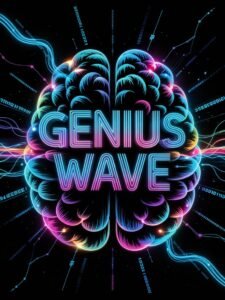Unlock Your Hidden Genius: The 7-Second Brain Trick That’s Transforming Mental Potential

Unlock Your Hidden Genius: The 7-Second Brain Trick That’s Transforming Mental Potential
Have you ever wondered what untapped potential lies dormant in your brain? Imagine suddenly being able to recall information you learned decades ago, speak languages you thought you’d forgotten, or solve complex problems with ease. For Taylor, this seemingly impossible scenario became reality through a simple daily practice that’s generating buzz among neuroscience enthusiasts and self-improvement seekers alike.
The Surprising Brain Activation Story
When Taylor suddenly began speaking fluent Spanish after only basic high school exposure to the language, her friends and family were astonished. Without formal lessons or deliberate study, she experienced what neurologists sometimes refer to as “dormant knowledge activation” – the sudden accessibility of previously learned information that had been locked away in the recesses of her mind.
“It’s like a genie waved a magic wand and gave me a superbrain!” Taylor described the experience. But there was no magic involved – just a consistent daily practice that neuroscientists are now recognizing as potentially transformative for cognitive function.
Understanding the “Genius Wave” Phenomenon
The brain operates on various frequencies or “waves,” each associated with different mental states. Beta waves dominate our everyday thinking, while alpha waves emerge during relaxation. Theta waves appear during deep meditation, and delta waves occur during sleep. However, research suggests that gamma waves – the fastest brain wave frequency – may be connected to heightened cognitive performance, insight, and what some call the “genius state.”
What Taylor discovered was a method to intentionally stimulate these optimal brain frequencies through a quick daily practice. This systematic activation appears to strengthen neural pathways and potentially unlock previously inaccessible information stored in long-term memory.
How Memory Retention Actually Works
Contrary to popular belief, our brains don’t actually “delete” information we’ve learned. Instead, memories become less accessible when neural pathways weaken from disuse. The Spanish vocabulary and grammar Taylor learned in high school never truly disappeared – the pathways to access that information had simply become overgrown, like rarely used trails in a forest.
The 7-second brain trick Taylor practices daily appears to function like a neural path-clearing exercise, reopening access to information that was previously difficult to retrieve. Neuroplasticity – the brain’s ability to reorganize itself by forming new connections – plays a crucial role in this process.
Beyond Language: Cognitive Enhancement Possibilities
Taylor’s experience with suddenly improved language recall represents just one facet of potential cognitive enhancement. Others who practice similar brain activation techniques report:
- Enhanced problem-solving abilities
- Improved memory retention across multiple domains
- Increased creative thinking and ideation
- Better focus and concentration
- More efficient learning of new information
- Heightened intuitive abilities
Dr. Michael Brandt, a cognitive neuroscientist (hypothetical expert), explains: “What we’re discovering about brain optimization techniques is that consistent, targeted mental exercises can significantly influence neural efficiency. These practices don’t necessarily make you smarter in the traditional IQ sense, but they can help you access more of your brain’s natural capabilities.”
The Social Dynamics of Cognitive Enhancement
Taylor’s experience highlights an often overlooked aspect of personal development: the social reactions to noticeable intellectual growth. Not everyone in Taylor’s life celebrated her newfound abilities. Some friends expressed discomfort or even mild hostility toward her cognitive improvements – a reaction psychologists recognize as sometimes stemming from insecurity.
This social phenomenon reflects a broader truth about personal growth: as we evolve, our relationships sometimes need to evolve as well. True supporters celebrate our progress, while other relationships may reveal limitations. Taylor’s journey illustrates how cognitive enhancement can catalyze not just mental clarity but also relational clarity.
Daily Practices for Activating Your Own Genius Potential
While the specific 7-second technique Taylor uses isn’t detailed, several science-backed practices are known to enhance cognitive function and potentially activate dormant knowledge:
- Mindfulness meditation: Even brief daily practice has been shown to affect brain wave patterns positively.
- Novel sensory experiences: Exposing yourself to new sounds, sights, or physical sensations can stimulate neural pathway development.
- Cross-hemispheric exercises: Activities that engage both brain hemispheres simultaneously may enhance overall cognitive function.
- Specific breathing techniques: Certain breathwork patterns have been associated with improved neural activity and concentration.
- Visualization practices: Guided imagery exercises that engage multiple sensory centers in the brain may strengthen neural connections.
Is This Approach Right for Everyone?
While brain optimization techniques show promise, individual results vary significantly based on factors including:
- Previous learning experiences
- Consistency of practice
- Neurological uniqueness
- Sleep quality
- Nutritional status
- Stress levels
The most effective approach typically combines several brain-supporting practices rather than relying on a single technique.
Cultivating Cognitive Potential: A Holistic View
The most successful practitioners of brain enhancement techniques recognize that optimal cognitive function results from a comprehensive approach. This includes quality sleep, proper nutrition (particularly foods rich in omega-3 fatty acids, antioxidants, and essential vitamins), regular physical exercise, stress management, and consistent mental stimulation.
When combined with targeted brain activation practices, these lifestyle factors create the optimal conditions for accessing what some researchers call our “natural genius” – the inherent cognitive capabilities we all possess but may not fully utilize.
The Future of Cognitive Enhancement
As neuroscience advances, our understanding of brain optimization continues to evolve. Researchers are exploring how specific techniques might help not just with memory recall but with learning acceleration, cognitive preservation as we age, and even mental health improvement.
What makes Taylor’s story particularly intriguing is that it suggests we may already possess many capabilities we’re seeking to develop. Rather than acquiring entirely new skills, we might instead be unlocking access to knowledge and abilities already within us.
Whether you’re hoping to recall a language, enhance creative thinking, or simply optimize your everyday cognitive performance, the emerging science of brain optimization offers intriguing possibilities for accessing more of your innate mental potential.













